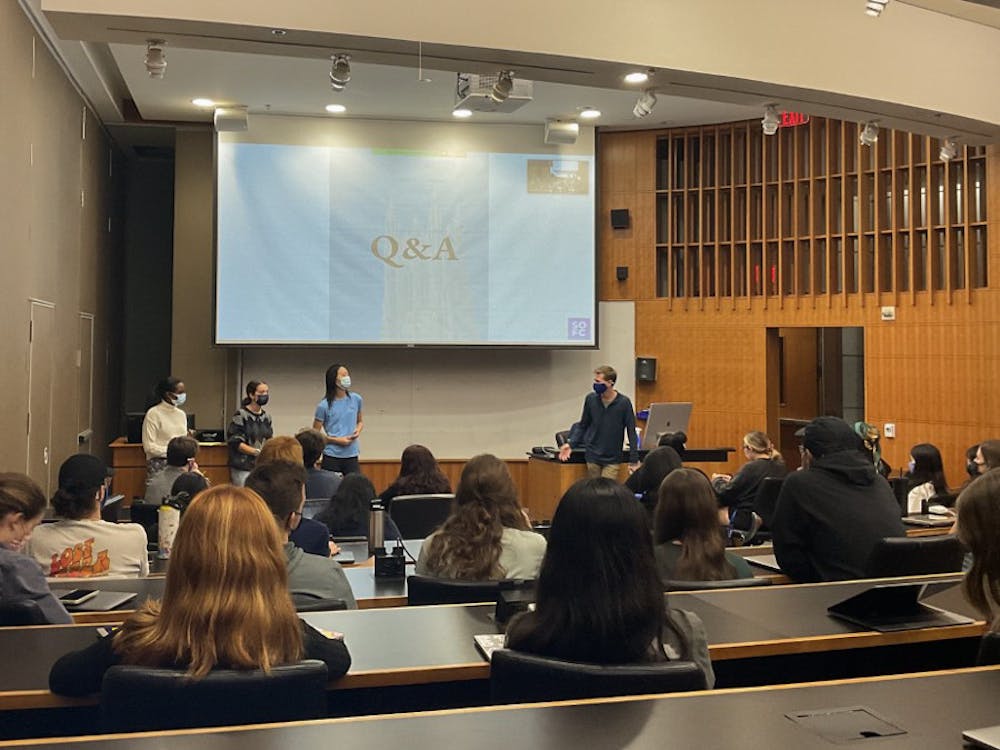More than five years after the initiative was first launched, Duke Student Government announced the public release of the Duke Syllabus Bank Monday morning.
Started due to concerns that students in exclusive social organizations had greater access to past course syllabi, the Syllabus Bank aims to increase academic equity by collecting syllabi for all students to view. The Syllabus Bank became available for student use Monday morning.
“By and large, the feedback has been tremendously positive, more positive than we could have ever expected or hoped for. People have pointed toward how intuitive it is as a user to search for syllabi. People have pointed toward the breadth of syllabi,” DSG Chief of Staff Shrey Majmudar said. Majmudar, a senior, has been working on the Syllabus Bank since the fall of his first year at Duke.
DSG members who worked on the Syllabus Bank hope that the resource will help students in multiple ways, including previewing courses they are interested in, finding professors to do research with and exploring recommended readings from other classes.
The Syllabus Bank is a resource for faculty, too.
“This is also a great resource for them to be able to look at what their peers in different departments are doing and pull different textbooks and readings,” Majmudar said. “All in all, we’ve seen tons of faculty buy-in.”
While the Syllabus Bank now contains over 1,000 syllabi, professor participation is voluntary, and the repository is not complete.
Majmudar said that there are several reasons for the lack of faculty participation, including the added difficulty of uploading web-based syllabi and hesitation about their intellectual property being so widely available. However, he said, DSG members are currently in talks with faculty leaders and administrators about ways— “incentive structures or otherwise”— to maximize uploads.
The Syllabus Bank started as a Duke Box folder of course syllabi that DSG senators collected, manually watermarked and uploaded individually. However, Majmudar explained, they quickly realized that this wouldn’t be a sustainable system, both because of the effort it took to add to the bank and because “frankly, it wasn’t the best way to partner with faculty.”
“Some faculty, I think, were very disappointed that students uploaded their own syllabi into the Bank without consulting with them,” Majmudar said.
This new format, Majmudar said, is a way to provide access to course syllabi while also partnering with faculty members and administrative bodies on campus.
Get The Chronicle straight to your inbox
Sign up for our weekly newsletter. Cancel at any time.

Anna Zolotor is a Trinity senior and recruitment chair for The Chronicle's 118th volume. She was previously news editor for Volume 117.

